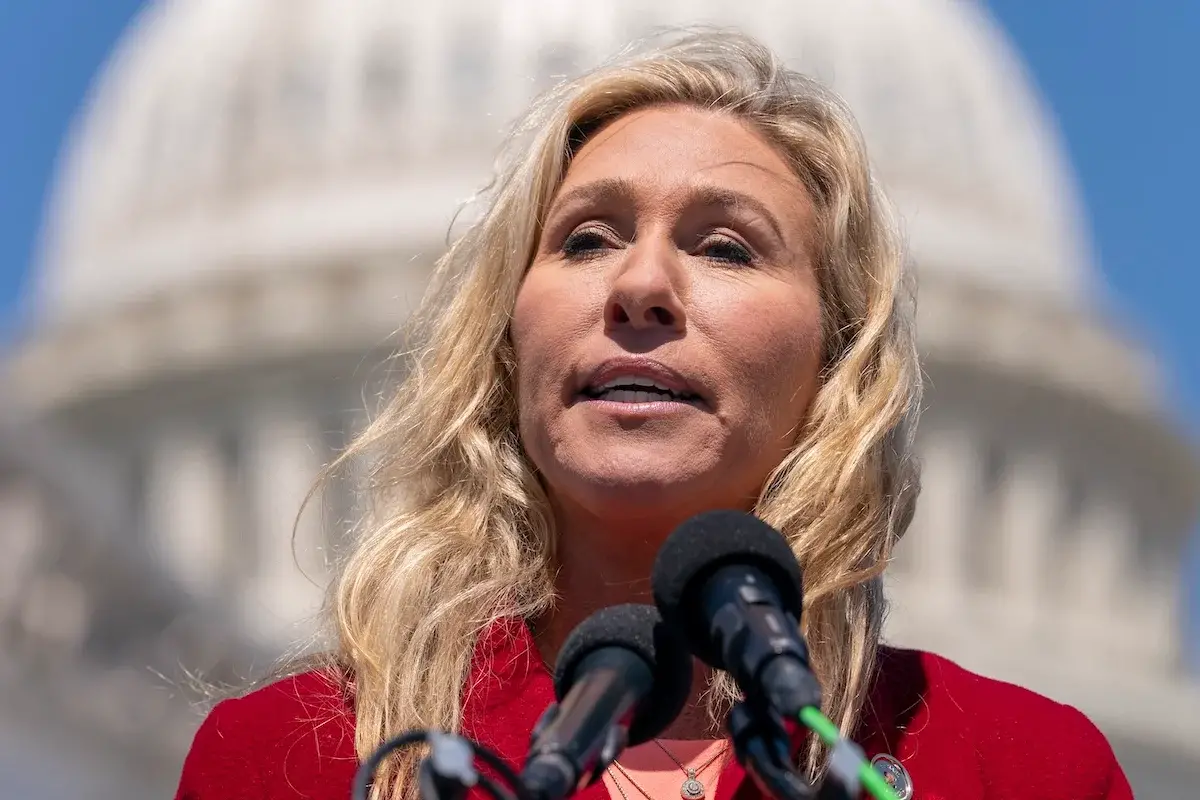Marjorie Taylor Greene Initiates Probe into USAGM: Concerns Over Mismanagement, Cronyism, and Security Risks
Representative Marjorie Taylor Greene announced an investigation into the U.S. Agency for Global Media (USAGM) on Thursday, citing concerns over allegations of mismanagement and favoritism. USAGM, which oversees platforms like Voice of America (VOA) and Radio Free Europe/Radio Liberty, is tasked with providing neutral and fact-based news coverage globally. Greene’s investigation aims to uncover issues of financial inefficiency and claims that the agency has strayed from its core mission of delivering unbiased information.
This investigation follows an executive order from former President Donald Trump in 2020 that sought to restructure various federal agencies, including USAGM, in an effort to reduce government spending. The order reflected an ongoing debate over government efficiency, with supporters arguing that these agencies had become bloated and vulnerable to misuse.
Greene, who leads the Department of Government Efficiency (DOGE) subcommittee, framed the situation as one of “gross negligence” and “rampant cronyism.” She claims that mismanagement at USAGM has led to significant waste and poses a potential risk to national security. According to Greene, the agency’s operations are being undermined by poor oversight and unchecked allocation of funds.
The Open Technology Fund (OTF) is central to Greene’s investigation. Originally established to support the development of open technologies, Greene alleges that the OTF has been misused to issue contracts to people with personal connections to agency insiders. She argues that these actions have wasted taxpayer dollars and compromised USAGM’s ability to serve its intended purpose. If these claims are true, the diversion of funds and resources could jeopardize efforts to promote democratic values globally.
USAGM’s mission is particularly important in the context of global information warfare and digital misinformation. As an agency designed to offer independent news in regions where free press is restricted, it plays a key role in countering propaganda and promoting transparency. However, concerns about its management have raised doubts about the agency’s ability to fulfill its mission effectively.
One of the most alarming aspects of Greene’s investigation is the potential threat to sensitive information. USAGM is responsible for handling public diplomacy and independent reporting in countries where press freedoms are limited. Allegations of mismanagement could imply that the agency has been careless with classified data, leaving it vulnerable to foreign interference or espionage. Greene’s inquiry points to lapses in security protocols, which, if substantiated, could have serious consequences for national security and public trust.
The Trump administration’s executive order to dismantle USAGM was part of a broader effort to eliminate inefficiencies within federal agencies. Critics of USAGM argue that it had grown ineffective and prone to waste, while others contend that its importance in global communication efforts was being overlooked. The administration’s actions were also viewed as an attempt to regain control over the flow of information, with supporters claiming that a streamlined government would be better able to serve the interests of American citizens and counter external threats.
The investigation is also examining broader concerns about the contracting process at USAGM. Reports have emerged suggesting that certain contracts were awarded without proper oversight, raising questions about the transparency of financial decisions. For example, the termination of contracts with major newswire services like Reuters and the Associated Press was seen as part of a larger strategy to reduce waste. These actions were projected to save taxpayers millions of dollars, but they have also drawn attention to the need for greater scrutiny of government spending.
The implications of these issues are significant. If USAGM is indeed compromised by mismanagement or cronyism, it could undermine the credibility of U.S. public diplomacy efforts and weaken the nation’s global standing. A loss of trust in the agency’s impartiality would hinder its ability to provide accurate, unbiased news and could make it more susceptible to manipulation by foreign adversaries.
Legal experts argue that investigations like Greene’s are vital for ensuring accountability and transparency in government operations. Independent audits, whistleblower protections, and clear legal guidelines for addressing mismanagement are among the recommendations put forward by experts to prevent such issues in the future. Ensuring the integrity of agencies like USAGM is crucial for upholding public trust and safeguarding the interests of both the American people and the broader global community.
The scrutiny of USAGM presents an opportunity to address long-standing issues of inefficiency and lack of oversight within the agency. Learning from past reforms and applying modern governance practices can help improve the management of taxpayer-funded organizations, ensuring that they serve their intended purpose effectively. By focusing on transparency, accountability, and efficient resource allocation, policymakers can work toward creating a government that better meets the needs of its citizens and upholds its global responsibilities.
